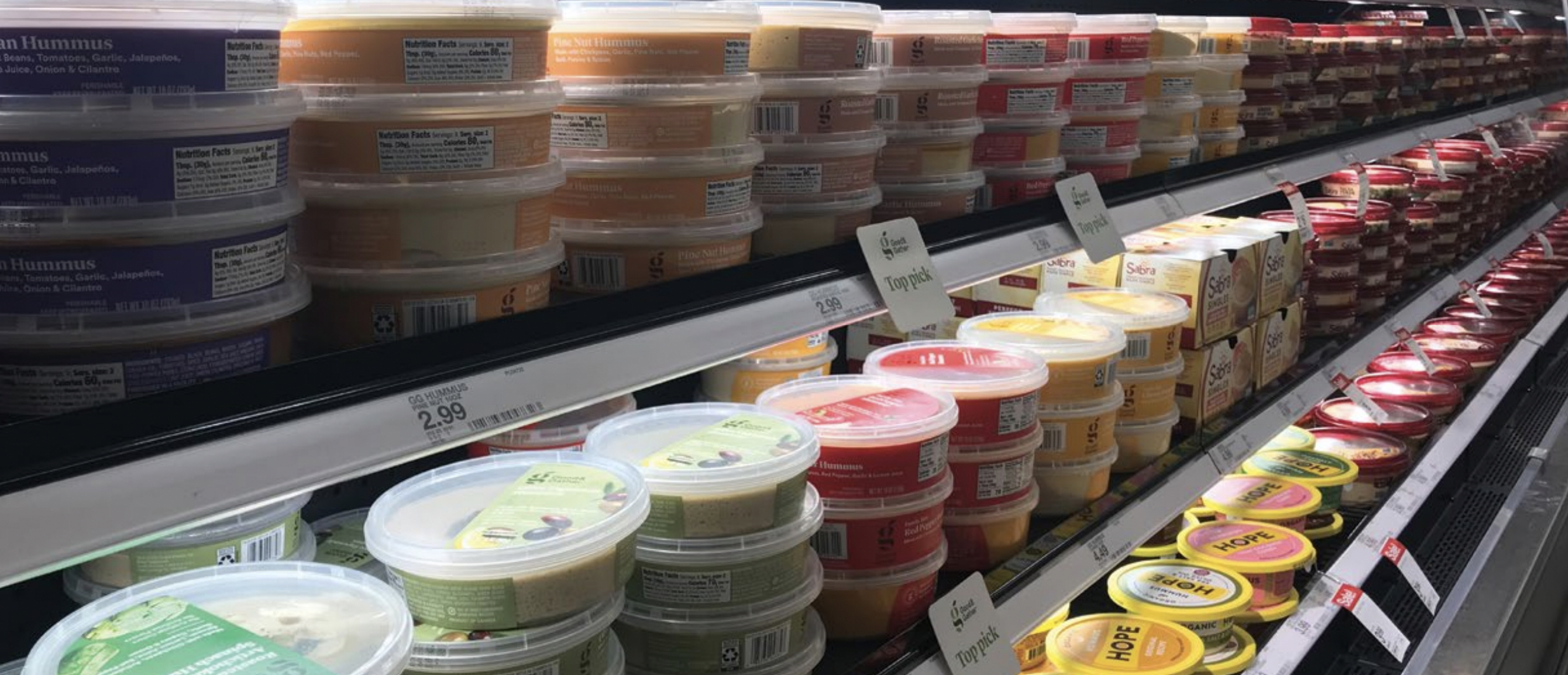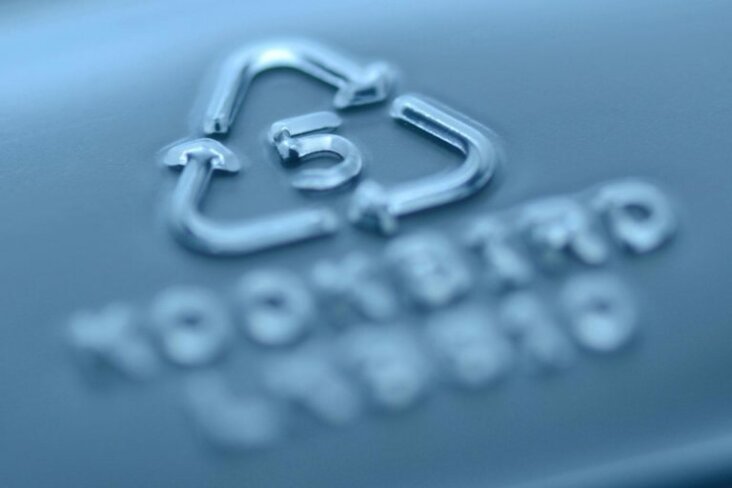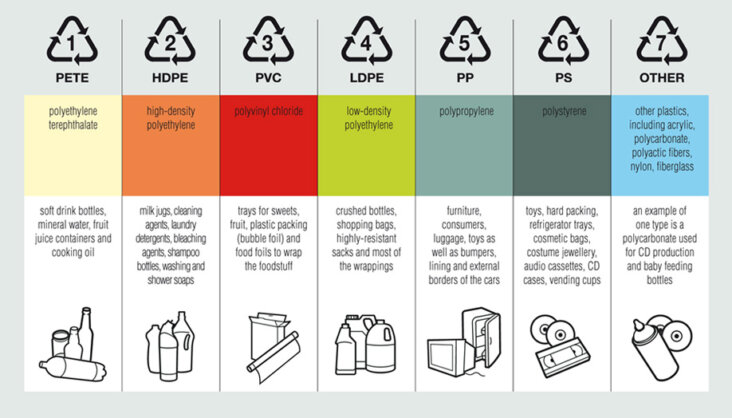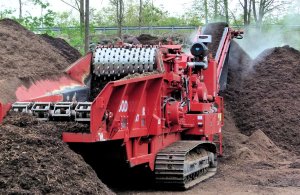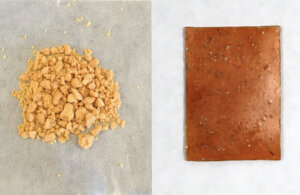Often misleading: the little triangle makes customers assume that an item is recyclable. That's not the case. Resin Identification Codes are used solely to identify the plastic resin used in a manufactured article. They were not designed as a consumer communication tool. (Credit: sustainablepackaging.org)
In order to determine the legitimacy of “recyclable” claims and labeling on consumer plastic products, a comprehensive survey of plastic product waste collection, sortation and reprocessing in the United States (U.S.) was performed. The survey is based on current conditions in October 2019 to January 2020 and U.S. Federal Trade Commission (FTC) Green Guides requirements for product claims and labeling. Companies are expanding the use of “recyclable” labels on plastic products at an aggressive pace, states the report published on greenpeace.org. Since claims and labels affect a consumer’s purchasing decision, the claims and labels must not be misleading to be legal and provide the environmental benefits claimed. According to the article the last comprehensive assessment of plastic waste recyclability was performed in 2015/2016 and is not representative of current market conditions, in part because of waste import restrictions imposed by China. An accurate and up-to-date analysis of the existing domestic collection and recycling/reprocessing capacity is needed now to determine the true recyclability of plastic consumer products.
Key results of the survey:
1. Only some PET #1 and HDPE #2 plastic bottles and jugs can be legitimately labeled as recyclable in the U.S. today. 2. Common plastic pollution items, including single use plastic food service and convenience products, cannot be legitimately claimed as recyclable in the U.S. 3. Plastics #3-7 have negligible-to-negative value and are effectively a category of products that municipal recycling programs may collect, but do not actually recycle. Plastic #3-7 waste collected in municipal systems across the country is being sent to landfills or incinerated. 4. Many full body shrink sleeves on PET #1 and HDPE #2 bottles and jugs make them non-recyclable.
So only a fraction of all the plastic that is still produced in gigantic masses is actually recycled. Even our top recycle-items, such as drinking bottles and shampoo flacons, can't all be recycled and end up in landfill or combustion. Hence, plastic recycling is no solution because it just doesn't really work and it must be communicated that way!
Resin Identification Codes are not “recycle codes.” (credit: sustainablepackaging.org)
PS: Resin Identification Codes are not “recycle codes”, explains astm.org, one of the world’s largest and most established standards creating organizations. The use of a Resin Identification Code on a manufactured plastic article does not imply that the article is recycled or that there are systems in place to effectively process the article for reclamation or re-use. The term “recyclable” or other environmental claims shall not be placed in proximity to the Code.
